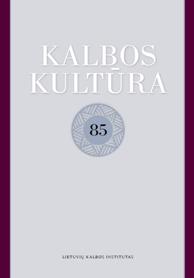Lietuvos moterų nepriesaginės (latviškos darybos) pavardės
Lithuanian women’s surnames (of Latvian word-formation) without suffixes
Author(s): Kazimieras GaršvaSubject(s): Baltic Languages
Published by: Lietuvių Kalbos Institutas
Keywords: surnames; word formation; dialects; standard language;
Summary/Abstract: The article provides 12 arguments why the new artificial surnames of women with the ending -ė are not beneficial for the women themselves or for the state, language and nation. There are only two arguments why these artificial surnames are necessary for some women – they are shorter and easier when communicating with foreigners.The same could be achieved in a more civilized and beneficial way: following the order of the Minister of Justice the applicant can shorten the surname if in traditional usage there is a shorter variant without suffix. Thus Vitkauskaitė or Vitkevičiūtė can become Vitkutė and Vitkauskienė or Vitkevičienė – Vitkienė (men should shorten their surnames too).The traditional way of feminine surname formation is supported by professors Vitas Labutis, Jonas Palionis, Aldona Paulauskienė, Zigmas Zinkevičius and others. There is no evident ideologist of the opposing side and comprehensive arguments are still not known.In our opinion the artificial forms of surnames (without a suffix and with the ending -ė) ruin the traditional word-formation system of the Lithuanian language, gives a rougher, negative shade to the surname and against the will of the owner indicates that a woman is of a marrying age and most probably married or divorced. Non-traditional surnames are not prestigious; they harm the Lithuanian language and should be abandoned.
Journal: Bendrinė kalba (iki 2014 metų – Kalbos kultūra)
- Issue Year: 2012
- Issue No: 85
- Page Range: 216-224
- Page Count: 9
- Language: Lithuanian

